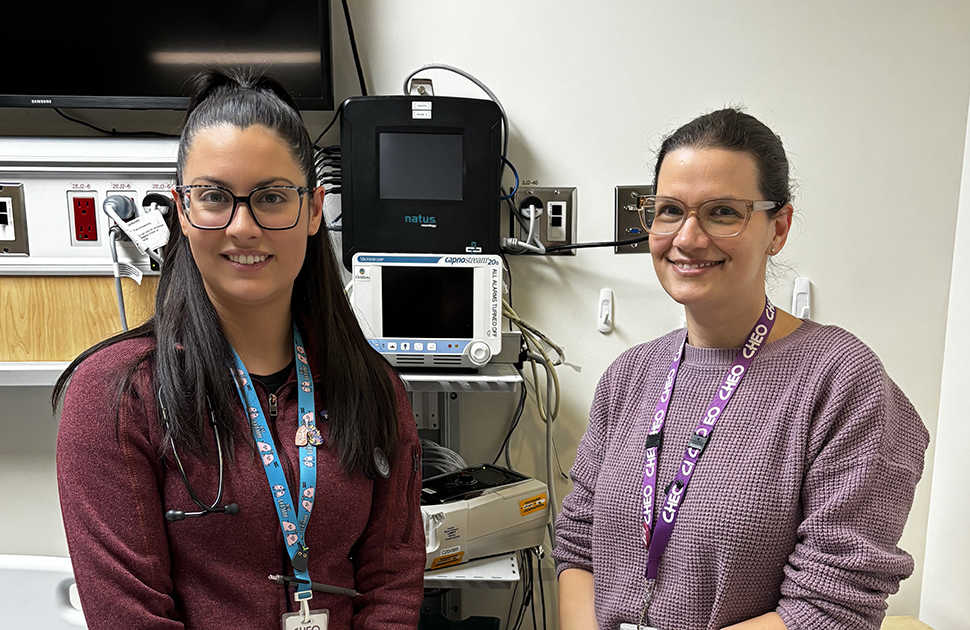
The CHEO sleep clinic can now see more new patients and treat those with severe sleep apnea much sooner thanks to historic funding from the Ontario government last summer.
The sleep clinic at CHEO, which sees children referred for sleep-disordered breathing, includes the sleep lab — where overnight sleep studies are conducted to determine the severity of a child’s sleep apnea.
Dr. Sherri Katz, Division Chief of Pediatric Respirology at CHEO, says demand for sleep-related diagnosis has always been high, but more people recognize sleep apnea, which affects between one and four percent of children.
“With increased recognition also comes increased demand. People are being much more proactive at screening children who have symptoms and/or a high risk for having sleep apnea,” she said.
Sleep apnea is also now commonly identified as part of the larger medical picture for children with conditions like obesity, craniofacial abnormalities, neuromuscular disease, Down syndrome, among others.
The growing demand for diagnosis and follow-up care is why the sleep clinic added a nurse practitioner in August 2023.
This additional member of the team now enables the clinic to consult twice as many first-time patients to determine if a sleep study is necessary, while children who require the most urgent care can be seen within one to two weeks of a referral — compared to the previous wait time of two to three months.
Children diagnosed with severe sleep apnea in the sleep lab receive their sleep study sooner. A follow-up appointment is then scheduled within days of the study to establish a care plan and, in some cases, obtain the necessary equipment to facilitate any necessary urgent treatment at home.
“We’re able to deal with some critically ill children outside of the hospital ... where we wouldn’t have been able to before,” said Dr. Katz. “They’re getting treated faster and they’re saving a hospital admission in the process.”
Dr. Katz said the number of ICU admissions for severe sleep apnea has still increased because of the severity of some of the cases seen in the clinic.
The most common treatments for sleep apnea are surgery — a tonsillectomy and/or adenoidectomy, a continuous positive airway pressure (CPAP) machine, or a bi-level positive airway pressure (BiPAP) device.
On World Sleep Day (March 15), Dr. Katz wanted to remind children, youth, and families about the importance of sleep for growth and development, memory, attention span, ability to learn, impact on daytime behaviour, and other restorative purposes.
“This is why young children who are growing and developing need sufficient sleep,” she said.




